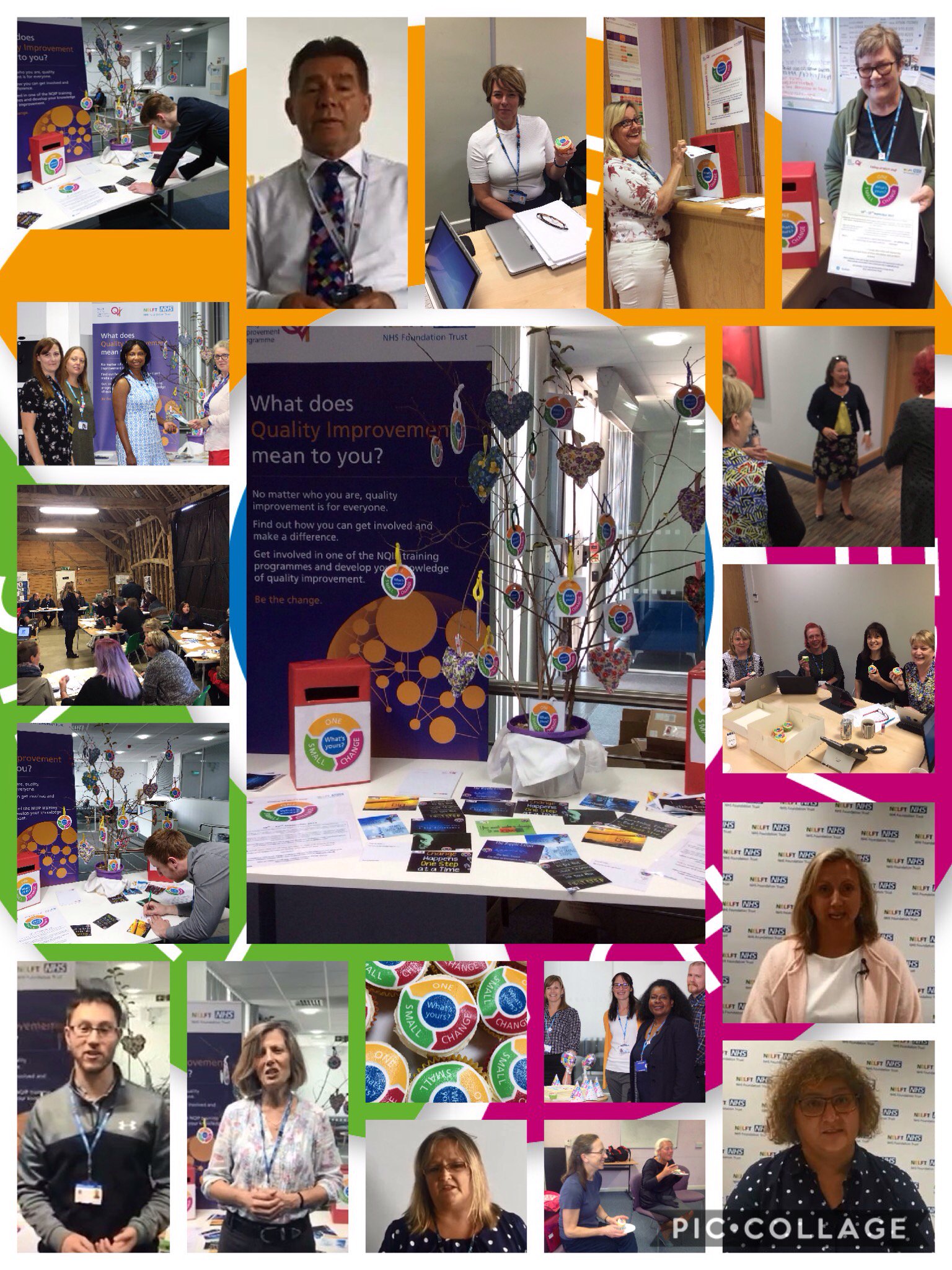The aim of the week was to engage with our staff and service users and ask the question “what one small change would you recommend to improve the care and services at NELFT?”
The Practice Improvement Team were delighted with the engagement and interest from staff and service users across the organisation. The Practice Improvement Team facilitated a wide variety of training sessions and attended a number of staff and patient meetings throughout the week.
Highlights include:
4 quality improvement training/support sessions.
• We saw the start to NQIP Facilitators Cohort 5 programme
• 4 Bitesize QI sessions were delivered during the week. Attendees at the bitesize sessions scored the session a 10/10 and would recommend the session to their colleagues •
An away day with the MSK team in Havering – 6 ideas for QI projects emerged from this away day!
• A QI clinic in Barking Community Hospital, to which 8 staff attended.
We attended 8 different staff forums/meetings throughout the week to speak about QI and showcase some QI projects that are takin place in NELFT.
Our Chief Nurses got involved with the tennis ball game to demonstrate the value of PDSA cycles and testing change ideas.
We were invited to 2 patient engagement groups at Waltham Forest and Redbridge. This gave us an opportunity to hear directly from our service users and showed that we all share the same aim of improving the care and service that we provide.
Our QI Twitter account was very busy – 40 tweets, 39 retweets and 98 likes!
Over 30 teams requested postboxes/cards/posters to display in their work area and to help engage staff and service users
Just under 100 postcards were returned with suggestions of change ideas
The majority of onesmallchange ideas suggested from staff were aimed not solely on their own conditions of work but rather at better attending to the needs of their patients and families.
Many of the issues raised by staff related to issues that NELFT have been working to address: improving care planning, improving how we use technology, reduction of agency expenditure, access to services and reducing opportunities of waste within the trust.
Quality improvement offers a way to address these issues, often with best results starting from small changes and scaling up over time. As is often the case in complex systems, much wisdom lies within the workforce and among those that we serve. And when asked to identify small change ideas, our staff and service users can and will do so in service of providing better care for all that we serve.
Our next steps now are to engage with our staff who offered some wonderful change ideas and to support them in taking their onesmallchange idea to the next level and, by applying QI methodology, can implement their change ideas in to practice.
Thank you once again for taking part in our improvement week.

